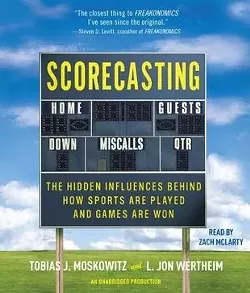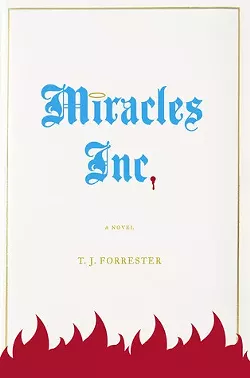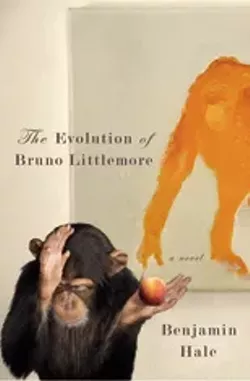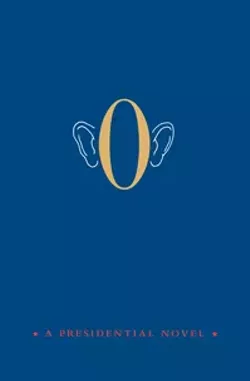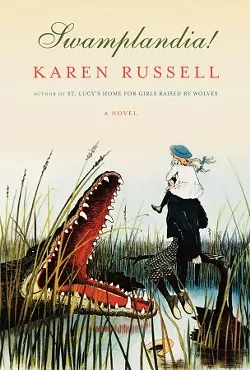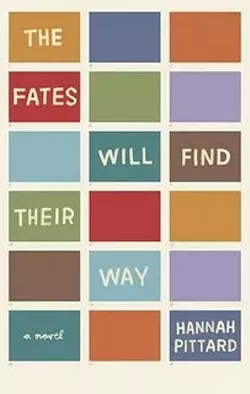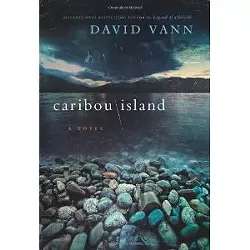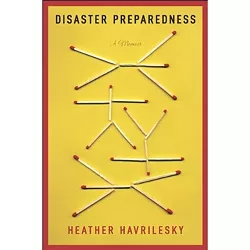Wednesday, February 9, 2011
Hot: Living Through the Next Fifty Years on Earth, by Mark Hertsgaard (Houghton Mifflin Harcourt, 350 pages, Jan. 19)
As a catchphrase, "global warming" gained currency in June 1988, when a NASA scientist warned the U.S. Senate and the New York Times put the story on its front page. We haven't done nearly enough since then — we've mostly been in denial — but Hertsgaard goes beyond doom-saying to outline the long-term planning that has been accomplished.
The Death Instinct, by Jed Rubenfeld (Riverhead, 460 pages, Jan. 20)
A historical novel that's a follow-up to Rubenfeld's The Interpretation of Murder (2007), which was set in 1909 New York and starred Freud, Jung, and one of Freud's disciples. His latest focuses on the 1920 Wall Street bombing, a terrorist precursor to 9/11. Marie Curie even makes an appearance. If you liked Caleb Carr's The Alienist (1994) — I know I did — you'll like the mix of psychology, crime and historical figures here.
A Palace in the Old Village, by Tahar Ben Jelloun (Penguin, 190 pages, Jan. 25)
An elderly Moroccan immigrant to France returns to Morocco, builds a big house, and waits, fruitlessly, for his assimilated-to-France adult children to return to him. Jelloun, 67, has taught and written in French for the last 40 years. ---
Scorecasting: The Hidden Influences Behind How Sports Are Played and Games Are Won, by Tobias Moskowitz and L. Jon Wertheim (Crown, 280 pages, Jan. 25)
Home teams tend to win because their fans' screaming biases the referees. Punting on fourth down is usually a bad idea. Blocking shots into the fourth row doesn't help your team all that much. When the count's 0-2, the strike zone shrinks. Read this combination of Freakonomics and Moneyball and rid yourself of conventional sports "wisdom."
Known and Unknown: A Memoir, by Donald Rumsfeld (Sentinel, 830 pages, Feb. 8)
There were things, to him unknown, that should have been known. Rummy dithered and people died.
Mr. Chartwell, by Rebecca Hunt (The Dial Press, 250 pages, Feb. 8)
In 1964, a widowed London librarian rents a room to a tenant who turns out to be ... a big, black, talking dog. Hold on — it's a metaphor. Because this is a psychological novel about depression. And in 1964, Winston Churchill was about to retire, having been plagued for years by what he referred to as the Black Dog of Depression.
We, the Drowned, by Carsten Jensen (Houghton Mifflin Harcourt, 680 pages, Feb. 9)
Tales spanning two centuries of the sailing men from a small town in Denmark — their cowardice and bravery, and the women back home who sustain them. The novel's multiple narrators create an epic story ending with World War II.
History of a Suicide: My Sister's Unfinished Life, by Jill Bialosky (Atria, 270 pages, Feb. 15)
Kim killed herself 20 years ago. Now Jill Bialosky has used the techniques of literary nonfiction — diaries mixed with the work of psychologists and poets — to investigate family, parenting, guilt, and the ravaging effects of suicide on those who are left behind.
The Old Romantic, by Louise Dean (Riverhead, 350 pages, Feb. 17)
Dad's in his 80s and dying. His dutiful son tries to reunite the family, which includes the eccentric wife (divorced 25 years before) and the scapegoated, estranged son. What results is a profanity-laced family dinner and road trip. A very British novel.
The Night Season, by Chelsea Cain (Minotaur, 330 pages, March 1)
Fourth in the series of detective novels set in Portland. Cain parallels a 1948 flood with the strange cause of death for four murder victims whose bodies were plucked from the black waters of the Willamette.
Wednesday, February 2, 2011
People whose pain appears as bright light, David Cassidy fanatics, a 60-year-old failure and Ernest Hemingway's first wife — these are some of the topics in this selective list of books published from last week through the end of February.
A Stranger on the Planet, by Adam Schwartz (Soho Press, 330 pages, Jan. 25)
A debut novel about growing up in the '60s with the effects of a divorce and an emotionally needy, awkward mother.
Noah's Compass, by Anne Tyler (Ballantine reprint of the Jan. 2010 hardcover, 300 pages, Jan. 25)
Twice divorced, remote from his daughters, and now fired from his less-than-ideal prep school teaching job, plain and unassuming Liam now hopes to rejuvenate his life with an eccentric woman half his age.
The Illumination, by Kevin Brockmeier (Pantheon, 270 pages, Feb. 1)
Suddenly, beams of light start shooting out of people's bodies — it's their pain, made visible. In six interconnected stories that add up to a novel — a husband's love notes to his dying wife are passed among all the main characters — Brockmeier questions whether suffering can be beautiful.
Journal of a UFO Investigator, by David Helperin (Viking, 300 pages, Feb. 3)
A coming-of-age novel about Danny, whose investigations everyone laughs at until someone breaks into his house and steals his diary about his encounter with Three Men in Black.
I Think I Love You, by Allison Peason (Knopf, 330 pages, Feb. 8)
Teenage girls in 1970s Wales worship David Cassidy. A generation later, after disappointments and a failed marriage, one of them gets to travel to the States and meet a Cassidy expert. Will the celebrity worship that she used back then to help her work out her relationships with boys do her any good now? As an afterword-bonus, you get a 2004 interview with Cassidy himself, then 54.
West of Here, by Jonathan Evison (Algonquin, Books, 500 pages, Feb. 15)
A novel, set on the Olympic Peninsula, that jumps between 1889, when settlers decide to build a dam on the Elwha River, and 2006, when their descendants want to tear it down for fish runs. The Klallam Tribe, early feminists, Bigfoot searchers, environmental scientists and survivalists all make appearances in this big, sprawling novel of the Pacific Northwest.
A Widow’s Story, by Joyce Carol Oates (Ecco Press, 430 pages, Feb. 15)
You've been married to him for 47 years. He goes into the hospital, but you're both sure that he'll be out in just a few days. And then, suddenly, he's dead. The famous novelist escapes through work, laughs at herself, analyzes grief in brutally frank ways. A Widow's Story (pictured near top) is nearly a companion piece to Joan Didion's The Year of Magical Thinking (2005)
Smoking Typewriters: The Sixties Underground Press and the Rise of Alternative Media in America, by John McMillian (Oxford UP, 300 pages, Feb. 17)
Today we blog; in the '60s, radicals used photo-offset printing to spread the word of social change through clandestine rags of a few thousand copies each. But the principles — among Tea Partiers, among Obama's young voters — are the same: communication among rabble-rousers by non-traditional means.
When the Killing’s Done, by T. C. Boyle (Viking, 380 pages, Feb. 22)
In Boyle's 13th novel, set in the Channel Islands (west of Santa Barbara), biologists and activists duke it out over invasive species. Boyle knows his biology and the various motives of his protagonists, resulting in "a piercing vision of our needy, confused and destructive species thrashing about in the great web of life."
The Paris Wife, by Paula McLain (Ballantine, 330 pages, Feb. 22)
We think we know Papa Hemingway — old and bearded and suicidal. But in the Roaring '20s, he was young and idealistic and very much in love. A novel told from the point of view of his first wife, Hadley.
Townie: A Memoir, by Andre Dubus III (W.W. Norton, 400 pages, Feb. 28)
A distant but famous father (also a writer); a working-class, single-mother upbringing in a Massachusetts mill town where drugs were readily available; and a mix of rage (lots of fights) and sensitivity (lots of storywriting) combine to enliven the memories of Dubus (rhymes with "excuse").
Tuesday, January 25, 2011
Arriving soon on bookshelves (and in the cloud): novels about Hungarians in love, preachers in prison, Greenwich Village in the '40s, an intelligent chimpanzee and a reluctant revenger — along with nonfiction about gay teens, a world chess champion, Bogie, a British boyhood, and the Good Book.
Monday, January 24, 2011
In The Guardian, Laura Miller laments the way most contemporary novelists avoid examining our virtual lives (social networking, personal websites). A prominent exception that she notes is Jess Walter's The Financial Lives of the Poets, in which Matt, after all, tries to start a financial-advice site (with poetry!) even as his wife Lisa may (or may not) be pulling some naughty shenanigans over on her Facebook page.
Miller places Financial Lives in the same recent hip novel category as Chronic City, Freedom and Super Sad True Love Story — which we're pretty sure we'll be able to take as confirmation of Spokane's tech-savviness, just as soon as somebody explains all these internets to us.
Now why is that when I push Send, the person receiving my e-mail doesn't reply immediately?
Tags: Jess Walter , Books , Image
Tuesday, January 18, 2011
Coming soon to a Kindle near you: a biography of John Hinckley's favorite author, novels about twentysomethings growing up, a mysterious Parisian woman, and more.
J. D. Salinger: A Life, by Kenneth Slawenski (Random House, 460 pages, Jan. 25)
Why was Catcher in the Rye so cynical? Maybe because Salinger fought at D-Day. (Of course, he survived the bloodbath, then went to Paris and looked up Hemingway at the Ritz.) Slawenski, by most accounts, is a Salinger expert who's good at explicating the books in great detail while still smudging his portrait of, admittedly, one very elusive man.
O: A Presidential Novel by Anonymous (Simon & Schuster, 360 pages, Jan. 25)
O is a novel of political intrigue about President Obama and the things his advisers will do to win re-election in 2012, written by an anonymous author with vast personal experience in this realm. (By the way, cute ears on the cover.)
Juno's Daughters, by Lisa Saffran (Plume, 330 pages, Jan. 25)
In the San Juan Islands, an amateur summer production of Shakespeare’s The Tempest starts to parallel the lives of Jenny, her two daughters, and the handsome young actor, new in town, who’s also in the show.
The Intimates, by Ralph Sassone (Farrar, Straus and Giroux, 250 pages, Feb. 1)
It’s Will & Grace in novelistic form: Robbie and Maize date for a while in high school, until Robbie gradually figures out that he’s gay. Then Maize starts making poor choices among lovers and bosses. After a platonic, years-long friendship, Maize and Robbie realize that they are each other's human diaries. Sassone’s debut novel.
Swamplandia!, by Karen Russell (Knopf, 330 pages, Feb. 1)
Ava, just 12, has to take care of 70 gators, what with Mom dead and Dad and brother gone. Plus, her sister has run off with her ghost lover — no, really, he's a ghost — and they're somewhere on the other side of the Everglades. Carl Hiaasen — Florida's premier novelist of comic intrigue (Lucky You, Skinny Dip, Sick Puppy) — has raved about Russell, comparing her prose to that of Joseph Conrad, Gabriel Garcia Marquez and, best of all, Judy Blume. And besides, you gotta love any writer whose previous collection of short stories is entitled St. Lucy's Home for Girls Raised by Wolves.
Ghost Light, by Joseph O'Connor (Farrar, Straus and Giroux, 250 pages, Feb. 1)
As Molly Allgood wanders past bomb sites and through the forlorn beauty of wrecked terraces and wintry parks in 1950s postwar London, she remembers her once-dazzling career, her travels in America, and her love affair, back in 1907, with Irish playwright John Millington Synge (The Playboy of the Western World). O’Connor, who’s Irish himself, wrote Star of the Sea (about potato famine refugees crossing the Atlantic in a leaky boat) in 2003.
The Adults, by Alison Espach (Scribner, 320 pages, Feb. 1)
A debut novel about a teenage girl growing into her 20s while surrounded by untrustworthy authority figures. The effects of divorce, adultery, alcoholism and suicide all come crashing down on Emily when she’s just 14.
The Devotion of Suspect X, by Keigo Higashino, trans. Alexander O. Smith (Minotaur, 300 pages, Feb. 1)
Abusive husband threatens wife and daughter; in self-defense, the wife kills him. Then the next-door neighbor helps them with the cover-up — until the brilliant consulting detective (“Dr. Galileo”) turns out to be an old college acquaintance of the neighbor’s. What follows, in this psychological novel (originally published in Japan in 2005), is a battle of wills and wits, peppered with lots of philosophical sayings and mathematical proofs.
13, rue Therese, by Elena Mauli Shapiro (Reagan Arthur/Little, Brown; 280 pages, Feb. 2)
An American academic discovers a cache of objects (pictured in the book and, more thoroughly, online) from a feisty French woman who lived through both world wars. What the professor doesn’t realize is that he himself is being investigated by the woman who left the box for him to find.
You can't acquire these books yet. To read about books already available, visit our books blog.
Friday, January 14, 2011
The following books (all released Jan. 6-25) include novels about sisters and lost girls, and nonfiction about disease, physics, auto manufacturing, women in Afghanistan and celebrity couples.
The Killer Within: In the Company of Monsters, by Philip Carlo (Overlook, 250 pages, Jan. 6)
Carlo's books since 2006 have been about serial killers and Mafia bosses. Now he applies his detective skills as "the dean of true-crime horror writers" to something very different: the affliction, inside his own body, known as amyotrophic lateral sclerosis (ALS), or Lou Gehrig's disease.
The 4 Percent Universe: Dark Matter, Dark Energy, and the Race To Discover the Rest of Reality, by Richard Panek (Houghton Mifflin Harcourt, 320 pages, Jan. 10)
Everything we can perceive — planets, galaxies, outer space — is only 1/25th of what's actually out there. "Dark matter" and "dark energy" may be the equivalent of "Here there be monsters," but it's an exciting time for astronomers and physicists. As Panek says, "Not only are we not at the center of the universe, we’re not even made of the same stuff as the vast majority of the universe."
Punching Out: One Year in a Closing Auto Plant, by Paul Clemens (Doubleday, 280 pages, Jan. 18)
What symbolizes America's de-industrialization — the gradual decline of our manufacturing sector — better than the decline of a Detroit auto plant? A report from the assembly-line trenches.
The Weird Sisters, by Eleanor Brown (Amy Einhorn Books/Putnam, 320 pages, Jan. 20)
A debut novel tackles the themes of sisterhood, books and home. Dad's a Shakespeare professor, and his three adult daughters resemble Rosalind, Bianca and Cordelia. (They spent more time reading books than relating to each other — or, really, anyone.) Now Mom's dying of cancer, and the three sisters have to work out all their conflicts.
A Cup of Friendship, by Deborah Rodriguez (Ballantine, 300 pages, Jan. 25)
Rodriguez had a bestseller with her memoir, Kabul Beauty School, in 2007. She once operated a coffee shop in the Afghan capital, and in this, her first novel, Sunny is an American woman who operates a coffee shop in, you guessed it, Kabul. We meet a variety of women: the one who got away from the Taliban, the one who hides trendy clothes under her burqa, the British journalist who finds out about Afghan women who are addicted to the very opium that they’re harvesting, and several others.
And the Rest Is History: Famous (and Infamous) First Meetings of the World's Most Famous Couples, by Marlene Wagman-Geller (Perigee/Penguin, 250 pages, Jan. 25)
What happened when Cleopatra, Kahlo, Toklas, Bacall, Monroe, Ono and others met their significant others.
The Fates Will Find Their Way, by Hannah Pittard (Ecco/HarperCollins, 250 pages, Jan. 25)
Thirty years ago, a 16-year-old girl disappeared. We never find out what happened to her. What we do find out about, from a variety of first-person points of view, is the richly elaborate theorizing of the now-middle-aged boys she left behind: What the men imagine about the rest of Nora's life tells us much more about their own anxieties and beliefs than it does about her. If you liked Jeffrey Eugenides' The Virgin Suicides (1993), this debut novel might be roughly comparable.
Wednesday, January 5, 2011
Crash into Me: A Survivor's Search for Justice, by Liz Seccuro (Bloomsbury, 250 pages, Jan. 4)
At a Charlottesville frat party in 1984, she was drugged and brutally raped. UVa officials brushed her off. (Back in the '80s, there was a lot less sensitivity to the needs of rape victims.) She went through all the panic attacks and depression and flashbacks, even worked as a counselor to rape victims. Then, in 2005, the man who raped her wrote her a letter of apology -- and Seccuro decided to fight back and get him prosecuted.
American Uprising:
The Untold Story of America's Largest Slave Revolt, by Daniel Rasmussen (Harper, 280 pages, Jan. 4)
They wore
military uniforms. They were highly organized. There were 500 of them, back in
1811. And they came from the plantations around New Orleans. They lost, of
course: 100 of them killed, the rebellion crushed. Then there
was a massive cover-up -- because Southern slave owners didn't want word
getting around that the Negroes were capable of fighting back.
Caribou Island, by David Vann (Harper, 300 pages, Jan. 18)
A novel, set in Alaska and
about a disintegrating marriage, in which the landscape looms as large in
the narrative as the characters do. Middle-aged Gary, who didn't make it
in academia, plans to drag his wife Irene off to a remote log cabin for some
self-imposed exile. Their adult daughter, Rhoda, has problems of her own with
her womanzing dentist of a boyfriend. Suicide plays a part here, just as it did
in Vann's Legend of a Suicide,
about his own father's self-inflicted death.
You Know When
the Men Are Gone, by Siobhan
Fallon (Penguin, 240 pages, Jan. 20)
Interconnected stories about wives at Fort Hood, Texas. The sign above the gate
reads, "You've survived the war, now survive the homecoming."
Separate Beds, by Elizabeth Buchan (Viking, 380 pages, Jan. 20)
Set in Britain, this
is a novel about a crumbling middle-class, middle-age marriage — until
the recession, ironically, reunites the couple. Sort of. (Might have
something to do with the son moving back in and Grandma coming to stay. They
also have an estranged daughter — and the son's marriage is falling apart,
too.)
Tuesday, December 28, 2010
Here are some books that are coming out over the next month ...
Disaster Preparedness: A Memoir, by Heather Havrilesky (Riverhead, 250 pages, Dec. 30) The Salon.com journalist has written a memoir about the after-effects of divorce while living in 1970s North Carolina. Dad was a womanizing professor; Mom decided to move out; Heather and her sibs could never again trust whatever adults had to say. So Heather started planning escape routes in case of floods or alien invasions.
The Whistleblower: Sex Trafficking, Military Contractors, and One Woman's Fight for Justice, by Kathryn Bolkovac and Cari Lynn (Palgrave Macmillan, 250 pages, Jan. 4) According to Bolkovac, who won a wrongful termination lawsuit against them, DynCorp International (a private security firm) systematically kept Bosnian women in the late '90s in debt bondage and forced prostitution.
Being Polite to Hitler, by Robb Forman Dew (Little, Brown; 300 pages; Jan. 6) This novel is the third of a trilogy (following The Evidence Against Her, 2001, and The Truth of the Matter, 2005) about a family in small-town Ohio; this one covers 1953-73: polio scares, the space race, civil rights, etc. Dew, who's married to a history professor in Massachusetts, debuted with Dale Loves Sophie to Death back in 1981; Robert Penn Warren was her godfather.
Examined Lives: From Socrates to Nietzsche, by James S. Miller (Farrar, Straus and Giroux, 430 pages, Jan. 4) Short biographies of 12 famous philosophers, focused on the question of how best to live the good life: Augustine found God within himself, while Nietzsche found no god anywhere.
Molotov's Magic Lantern: Travels in Russian History, by Rachel Polonsky (Farrar, Straus and Giroux, 420 pages, Jan. 4) She travels to the land of Dostoyevsky and the Cossacks, then all the way to Siberia and Lake Baikal. But it all starts when she's invited to live in the once impressive, now rundown building which once housed Vyacheslav Molotov (as in cocktail, as in Stalin's second-in-command). A kind of literary travelogue of the grimmest aspects of Russian history.
Clara and Mr. Tiffany, by Susan Vreeland (Random House, 400 pages, Jan. 11) In 2005, art historians stumbled onto caches of letters proving that the famous Tiffany lamps weren't devised by Tiffany at all. He never publicly acknowledged that most of the creative work was done by "the Tiffany girls" under the direction of one Clara Driscoll. Vreeland, who specializes in fiction about art history (like Girl in Hyacinth Blue, about a Vermeer painting, told in reverse chronology), now presents this novelized version of Clara Driscoll's dilemma in choosing between career and marriage.
Death and the Virgin Queen: Elizabeth, Dudley and the Mysterious Fate of Amy Robsart, by Chris Skidmore (St. Martin's Press/Phoenix, 450 pages, Jan. 18) Published in Britain last February to great acclaim (from Lady Antonia Fraser and Philippa Gregory, among others), this historical account by a current M.P. claims to solve a longtime mystery. In 1560, the most desirable match in Europe, just 27 years old, wanted to marry her non-royal lover, Robert Dudley. But then, under suspicious circumstances, Dudley's wife got dead. And now Skidmore's got the coroner's report.
The Poisoner's Handbook: Murder and the Birth of Forensic Medicine in Jazz Age New York, by Deborah Blum (Penguin paperback reprint, 330 pages, Jan. 25) People used to think that radium would make you glow with power. Aconite is so powerful that the ancient Greeks thought it came from the saliva of Cerberus, the three-headed dog. And thallium makes your hair fall out. Today, we may have CSI and Bones, but Blum's book goes back to when chemists and detectives were just starting to figure it all out. Check out our Dec. 16 Gift Guide issue for more book-buying suggestions, along with our Books blog (see link at bottom of this page).
Tuesday, December 14, 2010
Consider this as lagniappe before our Dec. 16 Gift Guide suggestions for books ...
Mostly nonfiction this week — and some of these titles aren't yet available.
The Memory Chalet, by Tony Judt (Penguin, 240 pages, Nov. 11)
Tony Judt died last summer of Lou Gehrig's disease. Physically unable to write, he would compose personal essays, then "record" them inside the imagined "rooms" of a Swiss chalet that he visited once when he was young. Sex, politics, food, road trips, class differences, riots and revolution are among the topics.
As Always, Julia: The Letters of Julia Child and Avis DeVoto, ed. Joan Reardon (Houghton Mifflin, 430 pages, Dec. 1)
You saw Julie & Julia, now get the backstory: more than 200 letters exchanged between Julia Child and Avis DeVoto, her friend and unofficial literary agent. The topics include recipes, of course, but also political gossip, how to learn French, how to host a cocktail party, and how to stuff a goose.
Radioactive: Marie and Pierre Curie: A Tale of Love and Fallout, by Lauren Redniss (It Books, 200 pages, Dec. 21)
A combination of science, biography, romance, history and art. Redniss recounts the pioneering work of the husband-and-wife team in collage-like drawings. Marie Curie — a Polish woman who discovered two elements and won Nobel Prizes in both physics and chemistry while working in male-dominated fields — is a story in herself.
Twin: A Memoir, by Allen Shawn (Viking, 240 pages, Dec. 30)
Imagine being 2 years old and having a twin sister. She starts to show signs of autism. When you're 10, she's institutionalized, but you hope she'll come home someday soon. Now it's 50 years later. She never came home. (Shawn's father, William, was once editor of The New Yorker; his brother Wallace is the well-known actor and playwright.)
The Lover's Dictionary, by David Levithan (Farrar, Straus and Giroux, 220 pages, Jan. 4)
A modern love story told through dictionary entries. For example:
basis, n. There has to be a moment at the beginning when you wonder whether you’re in love with the person or in love with the feeling of love itself.
If the moment doesn’t pass, that’s it — you’re done. And if the moment does pass, it never goes that far. It stands in the distance....
The Return: Russia's Journey from Gorbachev to Medvedev, by Daniel Treisman (Free Press, 540 pages, Jan. 4) Are Russians just more comfortable with autocratic rulers? Mikhail Gorbachev and Boris Yeltsin liberalized the country and moved it, haltingly, toward a more democratic process and freedom of the press. But Vladimir Putin, who still acts as prime minister alongside his puppet Dmitri Medvedev, is the one who remains popular. A UCLA historian tries to figure out why.
Peruse more suggestions for reading here and in our Dec. 16 Multimedia Gift Guide.
Wednesday, December 8, 2010
Two novels and three nonfiction books this week — good for the bookworm on your holiday gift list? (We'll have more suggestions in our Dec. 16 issue, the Multimedia Gift Guide.)
Half a Life, by Darin Strauss (McSweeney's, 200 pages, Sept. 15)
A memoir about how his life changed when he was a teenager, driving his dad's car, and a classmate swerved her bike in front of him, and he killed her. Even 18 years later, Strauss says, "“Name an experience. It’s a good bet I’ve thought of Celine while experiencing it.” Recommended among memoirs recently on NPR by Nancy Pearl (Book Lust).
And the Show Went On: Cultural Life in Nazi-Occupied Paris, by Alan Riding (Knopf, 400 pages, Oct. 19)
Suppose enemy forces overran your country. Would you resist, collaborate, flee or compromise? What about when your enemies started stealing all your artworks and started shipping them back to their nation? What about when acquaintances started turning up dead — would you just assume that somebody else would do the dirty work of Resistance? Riding provides a nuanced look at what performers and artists did while violence and repression held sway all around them.
Matched, by Ally Condie (Dutton Juvenile, 370 pages, Nov. 30)
YA fiction to match The Hunger Games? It's also about a future dystopia in which Society rules. In the case of Condie's main character, Cassia, Society dictates your schedule, your job, your spouse, everything — that is, until a computer error opens up the unthinkable: What if Cassia decides to defy Society?
The Metropolis Case, by Matthew Gallaway (Crown, 380 pages, Dec. 28)
A debut novel about opera that stretches from Paris in the 1860s to New York in the 2000s. (Before taking the plunge, study up on Richard Wagner's Tristan und Isolde.) Just for fun, at matthewgallaway.com, you can find out more than you ever wanted to know about his interior decorating tastes and pre-publication jitters.
Burial for a King: Martin Luther King Jr.'s Funeral and the Week That Transformed Atlanta and Rocked the Nation, by Rebecca Burns (Scribner, 250 pages, Jan. 4)
Back in April 1968, there were riots across the nation, but Atlanta remained calm. Burns offers a blow-by-blow account of the funeral planning; significantly, LBJ signed an equal-housing law the day after the funeral.

